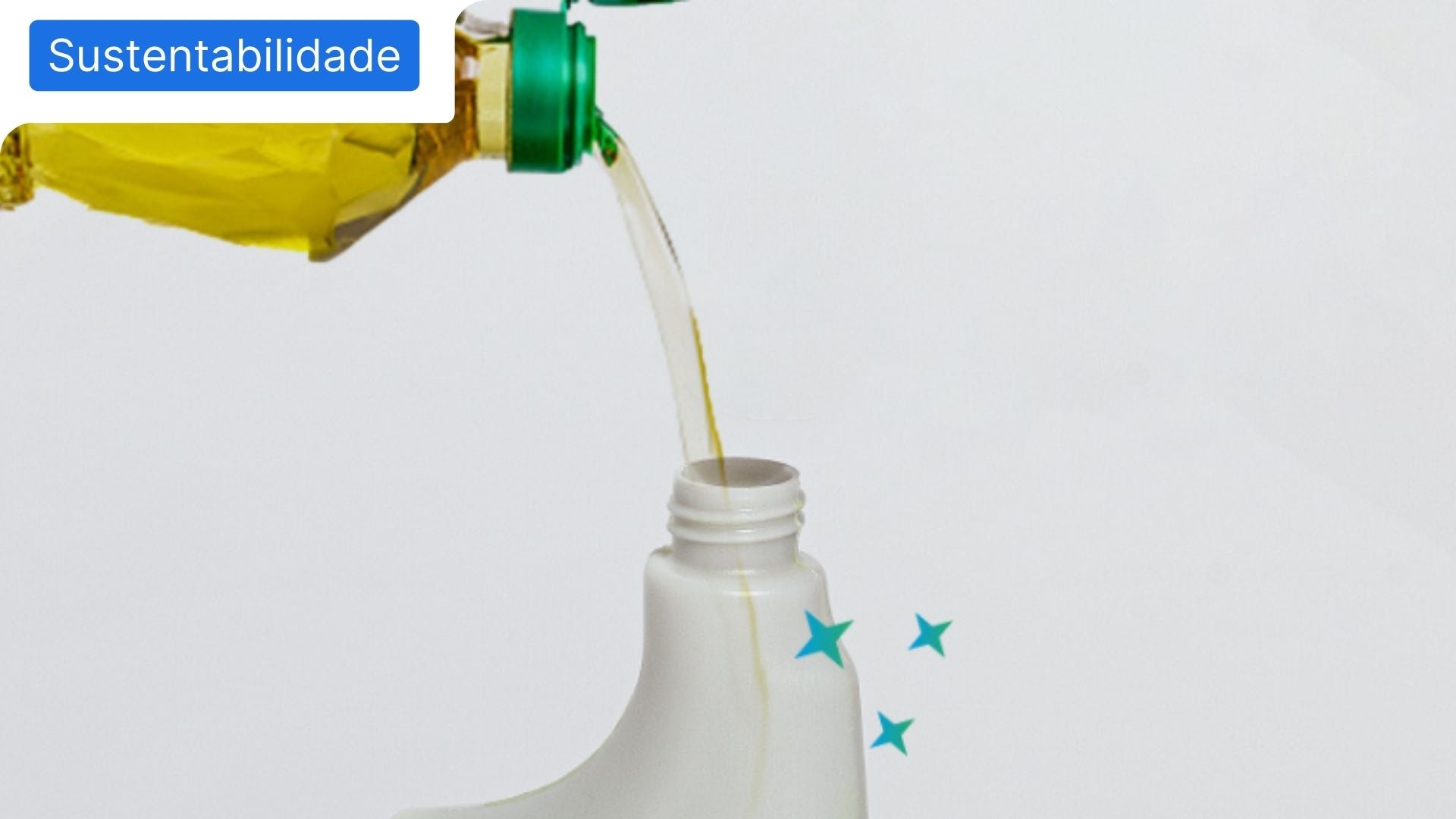
Upcycling detergents: what does this concept mean?
Do you know that humanity reached, on July 28, 2022, what planet Earth can produce for a year without running out? It therefore becomes essential to transform what may be disposable into new products. How can upcycling help with this task?
This concept, as well as recycling and reuse, has become increasingly important in terms of valuing waste. Can it also be applied in the production of detergents?
In this article, discover what it is, what its advantages are and what upcycling detergents are.
Meaning of upcycling
Natural resources are repeatedly transformed into products that are useful for each of us. However, when they are no longer in good condition or while they are being used (for example, detergents), they end up being discarded.
At a time when cities around the world produce around 1.3 billion tons of solid waste annually, it is important to have sustainable practices and alternatives to disposal.
In order to minimize this impact, the concept of upcycling emerges as a sustainable alternative to this problem: the practice of using something that is disposable and transforming it into another “something” of value.
In practice, it is the reinsertion of materials into the market that were destined for disposal. The material that would be discarded becomes a new product with a new function. In this way, it is possible to reduce the waste of virgin raw materials.
It offers several benefits for companies, people and the planet.
And what is the difference between upcycling and recycling?
In recycling there is the destruction of certain products into new materials that manufacturers use to create new products. For example, a can of soda is crushed into small pieces, cleaned and flattened. On the other hand, in upcycling, plastic bottles can become a jacket and even old tires can become covering materials for a gym.
Through recycling, discarded waste is collected, processed and reused. There are authors who also argue that recycling waste is not a completely ecological action as it reduces the quality of the product in each new life cycle.
This means that recycling can be considered downcycling. Therefore, downcycling is a type of recycling that we are used to doing, such as plastic recycling. Both recycling and downcycling are practices present in recovered products and it is important to have practices that are closer to upcycling.
In summary, while in recycling there is the destruction of what was discarded to create a product, upcycling uses what was discarded in its current state to create a new product.
What are the advantages of upcycling?
By reusing waste in its normal state and transforming it into new products, upcycling has several advantages.
Reduces the extraction of natural resources and energy
When recycling a raw material that already exists, it is not necessary to use natural resources to produce new products.
Saves materials that would be discarded, reducing waste in landfills
Complementing the idea above, this recycling of waste that already exists to transform it into new products reduces accumulation in landfills.
Reduction of CO2 emissions
The fact that upcycling reduces the extraction of natural resources and does not require chemical processes to treat raw materials reduces carbon emissions into the atmosphere.
Upcycling detergents: more than ecological detergents
We saw that upcycling is a concept in which you reuse what would otherwise be discarded and transform it into a product with a new function.
Transforming used cooking oil into detergents with a low environmental impact means upcycling: there are several ecological detergents on the market, but only EcoX is a pioneer in this transformation in the world.
How do these upcycling detergents differ?
EcoX detergents have several differentiating points that meet the upcycling concept:
- 50% extraction of natural resources
We reduced the extraction of natural resources to produce our products by +50%.
Recovery of waste
One liter of used cooking oil can contaminate up to one million liters of water (Quercus).
In a year, around 35 thousand tons of used cooking oil go down the drain in Portugal and WWTPs spend around 300 million euros to remove it from the water. This is waste that has several impacts on our homes, public networks, the aquatic environment, the soil and the climate.
By collecting it, in the public network and in partner stores, and transforming this waste into detergents, we protect thousands of liters of water from pollution.
Renewable use of resources
Through the circular economy, ingredients and packaging are reused and the use of primary resources is reduced.
After learning about this whole concept, let's continue upcycling together? You give us your used cooking oil and we transform it into your detergents.


